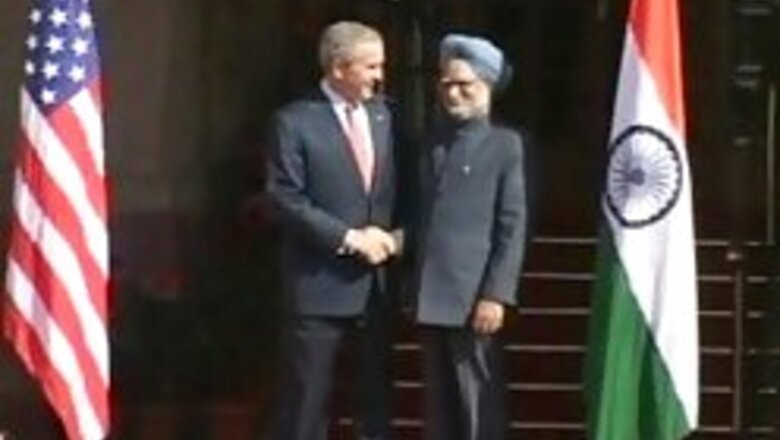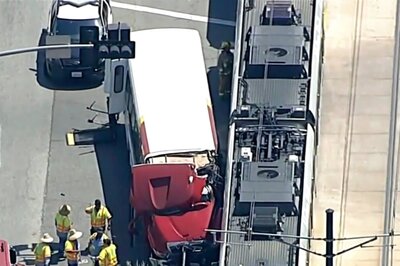
views
Washington: With the Indo-US civilian nuclear agreement remaining stalled, the State Department has issued a "virtual gag order" to the Congress asking it to keep even unclassified information "secret" out of fear that public disclosure could "torpedo" the deal.
Lynne Weil, a spokeswoman for the House Foreign Affairs Committee, said the State Department provided a lot of information on the deal, but the committee has agreed not to disclose the answers because "some data might be considered diplomatically sensitive."
However, the Washington Post said on Friday that the deal was in "such desperate" straits that the State Department had imposed the "unusually strict condition" asking the lawmakers to "keep secret" the answers it has provided.
The State Department made the request to Congress because though the answers were not classified, the officials fear that public disclosure would torpedo the deal, unnamed sources were quoted as saying by The Post.
Nearly 50 questions posed by Congress are highly technical, but they were carefully crafted to get to the heart of the balancing act the administration has performed between adhering to the letter of US non-proliferation law and assuaging Indian concerns that it was not being treated like a true nuclear power, the daily said.
One of the questions, it is said, pertains to whether the US would terminate nuclear trade if India resumes nuclear testing, a sensitive point in New Delhi.
Though it is required under US law, but the answer is not entirely clear from the text of the US-India agreement.
A group of prominent non-proliferation experts have decried the "virtual gag order", but so far the answers have not leaked, as only a handful of lawmakers have been able to read them.
"The administration's unwillingness to make their answers more widely available suggests they have something to hide from either U.S. or Indian legislators," Daryl Kimball, director of the Arms Control Association said.
Another series of questions addresses the commitment by the US to supply India with a "reliable supply of fuel" for its reactors, including a pledge to take steps to "guard against the disruption of fuel supplies."
A series of questions asks whether these commitments are legally binding, whether the two governments agree on the definition of a fuel supply disruption and whether the commitments would be affected by a nuclear test, the Post has said adding that at one point, the lawmakers question whether these commitments in the implementing agreement are consistent with the Hyde Act.
Sources have told The Post that given the specificity of the questions the State Department had little choice but to be candid with lawmakers about the answers, in ways that senior State Department officials had not been in public.
Weil, however, said the nuclear deal still must come back to Congress for final approval, and, at that point, public hearings will be held and "the questions will come up again."
"We've handled answers to sensitive questions in an appropriate way that responded to congressional concerns. We're going to continue with that approach," State Department's Deputy Spokesman Tom Casey said.


















Comments
0 comment